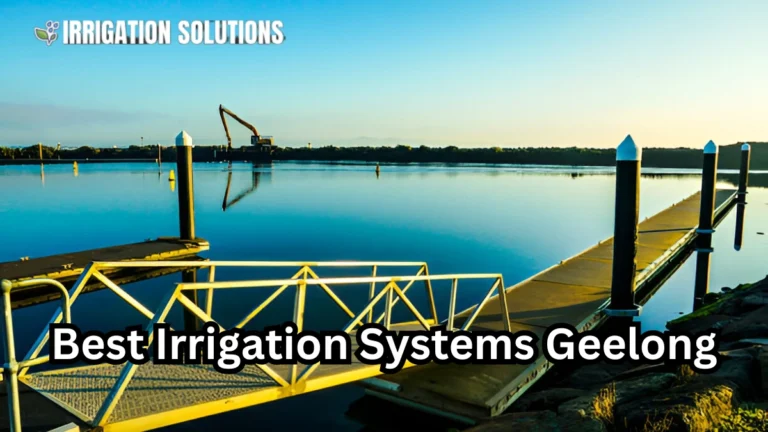top irrigation solutions reviews

irrigation solutions reviews plays a pivotal role in sustainable agriculture, landscaping, and water conservation. Selecting the right irrigation system can transform how water is managed, ensuring optimal plant growth while minimizing waste. In this blog, we’ll explore the most effective irrigation solutions, comparing their features, benefits, and ideal applications. Whether you’re managing a farm, a home garden, or a large commercial landscape, this guide will help you make an informed decision.
Importance of Modern irrigation solutions reviews
Efficient irrigation isn’t just about watering plants it’s about maximizing resources. With water scarcity affecting regions globally, sustainable irrigation practices are essential. Here’s why modern irrigation systems are game-changers:
- Water Efficiency: Advanced systems distribute water precisely where needed, reducing waste.
- Cost-Effective: Minimizing water usage lowers utility bills and operational costs.
- Better Plant Health: Consistent watering schedules enhance crop yield and garden vitality.
- Environmental Benefits: Reduced runoff and leaching help preserve local ecosystems.
Types of irrigation solutions reviews
Drip Irrigation Systems
Drip irrigation is a low-pressure, high-efficiency system that delivers water directly to the roots of plants.
Advantages:
- Water conservation up to 50% less water compared to traditional methods.
- Reduces weed growth by limiting water to desired areas.
- Ideal for crops, greenhouses, and gardens.
Disadvantages:
- High initial setup costs.
- Regular maintenance to prevent clogging.
Best for: Vineyards, orchards, and vegetable gardens.
| Feature | Benefit |
| Precision watering | Minimizes water loss |
| Customizable layout | Suits diverse terrains |
| Low evaporation rates | Ideal for arid climates |
Sprinkler Irrigation Systems
Sprinklers mimic natural rainfall, making them suitable for larger areas.
Advantages:
- Covers extensive regions quickly.
- Easy installation and operation.
- Adjustable spray patterns.
Disadvantages:
- High water evaporation rates in windy or hot conditions.
- Can cause soil erosion if overused.
Best for: Lawns, parks, and golf courses.
Pro Tip: Invest in rotor sprinklers for even water distribution across large spaces.
Surface Irrigation
This traditional method involves distributing water over the soil surface.
Advantages:
- Simple setup with no specialized equipment.
- Works well with certain soil types.
Disadvantages:
- Significant water loss through runoff and evaporation.
- Limited control over water distribution.
Best for: Rice paddies and flat agricultural fields.
Innovations in Irrigation Technology
The irrigation industry has seen remarkable advancements in recent years. Here’s a look at some cutting-edge solutions:
Smart Irrigation Systems
These systems use sensors and weather data to optimize watering schedules.
Key Features:
- Soil Moisture Sensors: Adjust watering based on real time soil conditions.
- Weather Forecast Integration: Prevents watering during rainfall.
- Mobile App Controls: Manage systems remotely.
Case Study:
A California vineyard adopted smart irrigation and reduced water usage by 30%, increasing grape yield by 20% in just one season.
Solar Powered Irrigation Pumps
Harnessing solar energy for irrigation is both eco friendly and cost efficient.
Benefits:
- Operates independently of electrical grids.
- Reduces long-term operational costs.
Real World Example:
In India, farmers using solar powered pumps reported a 40% decrease in energy expenses while maintaining consistent irrigation.
Choosing the Right Irrigation System
Selecting the ideal system depends on several factors:
| Factor | Recommendation |
| Land Size | Drip systems for small areas; sprinklers for large fields. |
| Soil Type | Sandy soil benefits from drip; clay suits surface irrigation. |
| Crop Type | Tailor systems to plant water needs. |
| Budget | Consider long-term savings vs. upfront costs. |
Tips for Maximizing Irrigation Efficiency
- Conduct Regular Inspections: Check for leaks, clogs, and uneven water distribution.
- Use Mulch: Helps retain soil moisture and reduce evaporation.
- Plan Watering Schedules: Water early morning or late evening to minimize evaporation.
- Adopt Zoning: Group plants with similar water needs together.
Conclusion
Modern irrigation solutions are indispensable for efficient water management. From the precision of drip irrigation to the versatility of smart systems, there’s an option for every need. By evaluating your unique requirements and staying updated with technological advancements, you can enhance productivity, save resources, and contribute to a sustainable future.






